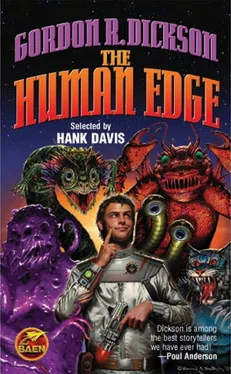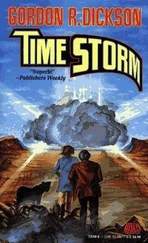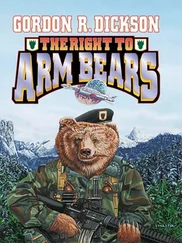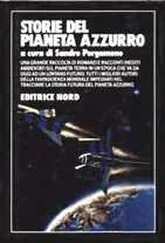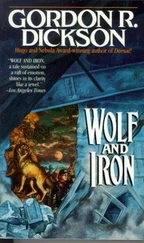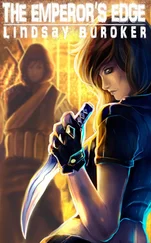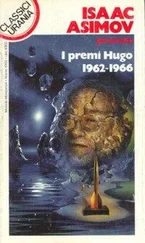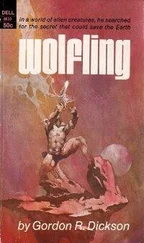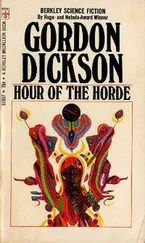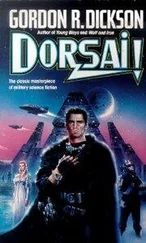The Envoy shivered again, remembering.
“Now I see,” he said.
“I thought you would,” said the Chief, grimly. “The situation to my mind is serious, enough so to call for the greatest emergency measures possible. We mustn’t make the mistake of the creature under the bridge in the story. We were prepared to let the humans get by our community strength because we thought of them as embryo Conquerors, and we hoped for better entertainment later. Now they come along again, this time as something we can recognize as Conqueror-plus. And this time we can’t let them get by. I’m going to call a meeting of our neighboring Conqueror executive Chiefs; and get an agreement to hit the humans now with a coalition big enough to wipe them out to the last one.”
He reached for a button below a screen on his desk. But before he could touch it, it came alight with the figure of his own attaché.
“Sir—” began this officer; and then words failed him.
“Well?” barked the Chief.
“Sir—” the officer swallowed. “From the Shielded Worlds—a message.” The Chief stared long and hard.
“From the Shielded Worlds?” said the Chief. “How? From the Shielded Worlds? When?”
“I know it’s fantastic, sir. But one of our ships was passing not too far from one of the Shielded Worlds and it found itself caught—”
“And you just now got the message?” The Chief cut him short.
“Just this second, sir. I was just—”
“Let me have it. And keep your channel open,” said the Chief. “I’ve got some messages to send.”
The officer made a movement on the screen and something like a message cylinder popped out of a slot in the Chiefs’ desk. The Chief reached for it, and hesitated. Looking up, he found the eyes of the Envoy upon him.
“Never—” said the Envoy, softly. “Never in known history have they communicated with any of us….”
“It’s addressed to me,” said the Chief, looking at the outside of the cylinder. “If they can read our minds, as we suspect, then they know what I’ve just discovered about the humans and what I plan to do about it.” He gave the cylinder a twist to open it “Let’s see what they have to say.”
The cylinder opened up like a flower. A single white sheet unrolled within it to lie flat on the desk; and the message upon it in the common galactic code looked up at the Chief. The message consisted of just one word. The word was:—
NO.
Back to human viewpoint—with a reminder of just how alien one human can be to another. This story shows Dickson’s skill, as he takes two human characters, making neither one sympathetic or easy to identify with, and still creates an engrossing story where these Kilkenny Cats flummox the belligerent aliens. But don’t pick a side to root for too soon. You have been warned!
“Well? Are the ships joined—or not?” demanded Arthur Mial.
“Look for yourself!” said Tyrone Ross.
Mial turned and went on out of the room. All right, thought Ty savagely, call it a personality conflict. Putting a tag on it is one thing, doing something about it another. And I have to do something—it could just be the fuse to this nitrojelly situation he, I, and Annie are all sitting on. There must be some way I can break down this feeling between us.
Ty glanced for a moment across the spaceliner stateroom at the statistical analysis instrument, called Annie, now sitting silent and unimpressive as a black steamer trunk against a far wall.
It was Annie who held the hope of peace for thousands of cubic light years of interstellar space in every direction. Annie—with the help of Ty. And the dubious help of Mial. The instrument, thought Ty grimly, deserved better than the two particular human companions the Laburti had permitted, to bring her to them.
He turned back to the vision screen he had been watching earlier.
On it, pictured from the viewpoint of one of the tractor mechs now maneuvering the ship, this leviathan of a Laburti spaceliner he was on was being laid alongside and only fifty yards from an equally huge Chedal vessel. Even Ty’s untrained eye could see the hair-trigger risks in bringing those hundreds of thousands of tons of mass so close together. But with the two Great Races, so-called, poised on the verge of conflict, the Chedal Observer of the Annie Demonstration five days from now could not be simply ferried from his ship to this like any ordinary passenger.
The two ships must be faced, main airlock to main airlock, and a passageway fitted between the locks. So that the Chedal and his staff could stroll aboard with all due protocol. Better damage either or both of the giant craft than chance any suspicion of a slight by one of the Great Races to a representative of the other.
For the Laburti and the Chedal were at a sparking point. A sparking point of war that—but of course neither race of aliens was concerned about that—could see small Earth drafted into the armed camp of its huge Laburti neighbor; and destroyed by the Chedal horde, if the interstellar conflict swept past Alpha Centauri.
It was merely, if murderously, ironic in this situation that Ty and Mial who came bearing the slim hope of peace that was Annie, should be themselves at a sparking point. A sparking point willed by neither—but to which they had both been born.
* * *
Ty’s thoughts came back from the vision screen to their original preoccupation.
It happened sometimes, he thought. It just—happened. Sometimes, for no discernable reason, suddenly and without warning, two men meeting for the first time felt the ancient furies buried deep in their forebrains leap abruptly and redly to life. It was rapport between individuals turned inside out—anti-rapport. Under it, the animal instinct in each man instantly snarled and bristled, recognizing a mortal enemy—an enemy not in act or attitude, but simply in being.
So it had happened with Ty—and Mial. Back on Earth, thought Ty now, while there was still a chance to do something about the situation, they had each been too civilized to speak up about it. Now it was too late. The mistake was made.
And mistake it had been. For, practical engineer and reasonable man that Ty was, reasonable man and practical politician that Mial was, to the rest of mankind—to each other they were tigers. And common sense dictated that you did not pen two tigers alone together for two weeks; for a delicate mission on which the future existence of the human race might depend. Already, after nine days out—
“We’ll have to go meet the Chedal.” It was Mial, reentering the room. Ty turned reflexively to face him.
The other man was scarcely a dozen years older than Ty; and in many ways they were nearly alike. There could not be half an inch or five pounds of weight difference between them, thought Ty. Like Ty, Mial was square-shouldered and leanly built. But his hair was dark where Ty’s was blond: and that dark hair had started to recede. The face below it was handsome, rather than big-boned and open like Ty’s. Mial, at thirty-six, was something of a wonder boy in politics back on Earth. Barely old enough for the senatorial seat he held, he had the respect of almost everyone. But he had been legal counsel for some unsavory groups in the beginning of his career. He would know how, thought Ty watching him now, to fight dirty if he had to. And the two of them were off with none but aliens to witness.
* * *
“I know,” said Ty now, harshly. He turned to follow Mial as the other man started out of the room. “What about Annie?”
Mial looked back over his shoulder.
“She’s safe enough. What good’s a machine to them if no one but a human can run her?” Mial’s voice was almost taunting. “You can’t go up with the big boys, Ross, and act scared.”
Читать дальше
